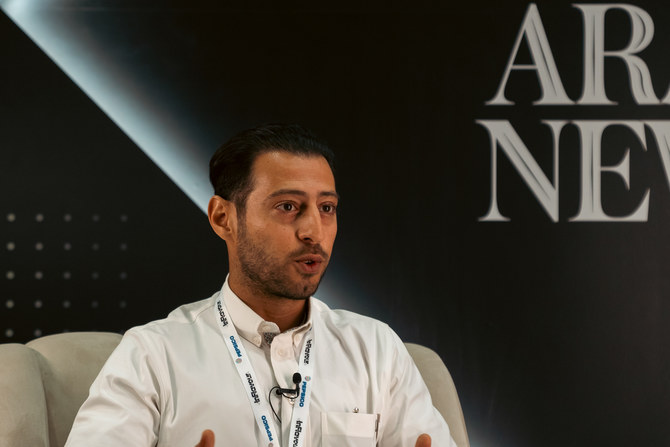Riyadh: Though the magic of fine dining was intended to take place in restaurants, Saudi-based food delivery app Lugmety is bringing the experience straight to your home.
The company was the official sponsor of InFlavour, Saudi Arabia’s top F&B event that was held in Riyadh from Oct. 29-31. Lugmety’s CEO and co-founder, Khaled El-Moselhy, told Arab News what it takes to make it in the food delivery industry.
Founded in 2017 by Faisal Sadagah and El-Moselhy, the company entered the market “in a disruptive manner,” the CEO said, by providing delivery services exclusively from fine-dining establishments and then eventually offering dishes from more accessible restaurants and chains.
“Initially, we had a lot of pushback. A lot of people said that they didn’t see the point of having fine food or fine dining at home. It was more of a thing that you go out too,” he said.
But the company grew in popularity after customers discovered they could access their favorite meals.
“The first year was just a proof of concept. It was just a website until we saw some traction and then we invested. We went all in and we invested in an app and it’s been great ever since then,” he said.
Now, the app offers much more than just restaurant deliveries, but also groceries, personal care items and features for table bookings. It has also expanded its services across the Middle East.
However, creating customized fine dining experiences is not all Lugmety is about. What sets them apart, the CEO says, is their commitment to quality delivery services, from level of control to monitoring various touch points.
He added: “It’s a vetting process. So (when delivery personnel) register, they have to come in, we interview them and we also actually train them before they’re allowed to deliver orders. Also on the same end, our partner restaurants — we also train them on the way we operate.
“It’s not a standard operating model that goes across delivery apps. We’re a bit more meticulous in the way we do things, and that helps the process, helps the end client and consumer get a quality service. And that’s, I think, the main differentiating point.”
As Riyadh grows to be a global food hub, hosting international level restaurants such as Wolfgang Puck’s Spago and the UK’s award-winning Nozomi, boasting elegant and elevated experiences for diners in the Kingdom, it seems at times that innovation can go no further.
“The marketing is going exponentially, especially in Riyadh, more than Jeddah. The fine or premium dining scene is exploding, and what you can expect to see is a lot more solutions-oriented or solutions focused on delivering these services to the fine dining (market),” El-Moselhy said.
“The F&B suppliers are focused on the mass market. I think the client behavior is shifting where they’re looking for more … focused solutions and delivering actual authentic flavors and authentic brands instead of just globalized brands.”
He added that the COVID-19 pandemic also bolstered these changes. Being stuck at home drove people to try different things instead of ordering fast food.
About 80-90 percent of Lugmety’s partners are local, which is what drove the app’s success.
“We really found that to be our calling card in this industry. It helped us support the local business, and in turn, they supported us because the word of mouth is basically what helped Lugmety grow,” he said.
In continuing their efforts to support locals, it was important for the entrepreneurs to sponsor InFlavour, a government-backed expo that plays an integral role in bridging Saudi food production ecosystems with worldwide partners.
“We are also one of the few F&B aggregators in the Kingdom that are literally bred and born through Saudi Arabia … we like to show our support and we like to be part of the future vision driving the country and driving the F&B industry,” El-Moselhy said.
“Egyptian cuisine has been around for many centuries. Lebanese cuisine is well known around the world, and great Syrian cuisine. It’s only a matter of time before Saudi cuisine is the same. And I think events like this and the explosion of F&B restaurants and F&B fine-dining will put more of a spotlight on local cuisine.”




























